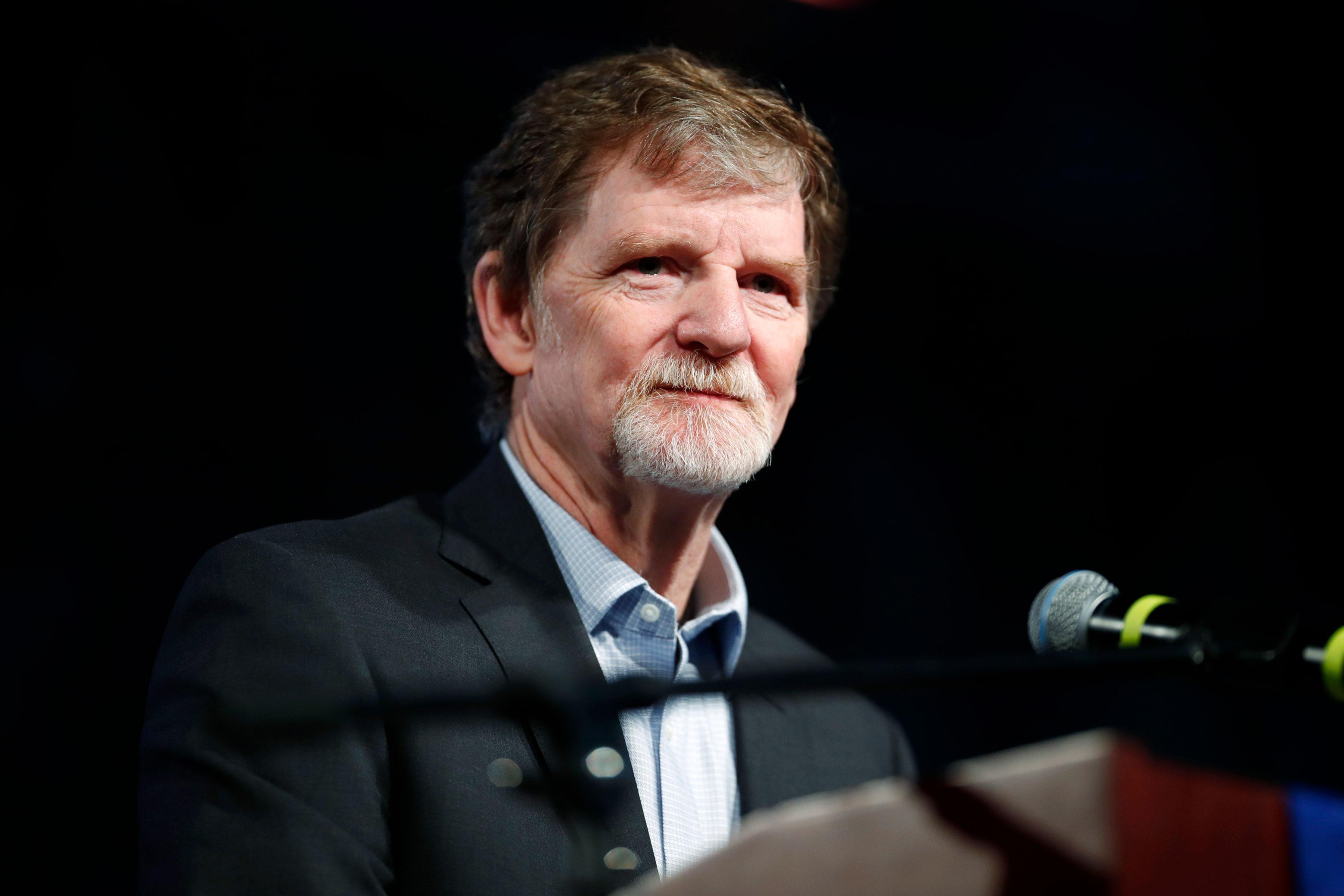

The first thing David Cortman points out when defending Lakewood baker Jack Phillips, is that Phillips serves everyone who walks through the doors of his Masterpiece Cakeshop.
Phillips heads to the Supreme Court Tuesday to make a case that he wasn’t discriminating against Charlie Craig and David Mullins when he declined to make them a wedding cake. Phillips said he offered to sell them other, off-the-counter baked goods, but that creating something custom for an event he doesn’t believe in violates the First Amendment’s guarantee of freedom of expression and religion.
Phillips' case will be argued by Cortman and the Alliance Defending Freedom, a growing Arizona-based conservative legal organization that has won five cases in the Supreme Court over the past three years.
“These public accommodation laws are generally intended for good … they’re now being applied so aggressively that it’s actually compelling people to speak,” said Cortman, senior counsel and a vice president for the ADF. “The government doesn’t have the right under the First Amendment to force people to speak a message they don’t believe in.”
Using the First Amendment as a defense in religious freedom cases isn’t entirely new. In the 1960s, a southern barbecue restaurant didn’t seat an African-American and the owner said it was because his religion didn’t believe races should mix. The Supreme Court found the restaurant violated the Civil Rights Act.
Critics and liberal legal organizations say Alliance’s approach — and burst of enormous success over the past decade — is changing the landscape of case law in this area. They worry they are turning the First Amendment’s guarantee for religious freedom into a justification to discriminate.
“I have begrudging respect for them,” said Scott Levin, regional director of the Anti-Defamation League.
Levin worries, though, that the shield of religious freedom has been turned on its head, and is now used “as a sword to try to influence, to make sure that I conform to the beliefs of ADF.”
Alliance’s success at the high courts has blossomed its fundraising, they raised $50 million in 2016 up from $36 million in 2011. They have thousands of allied lawyers around the country and staffs in Washington and Arizona.
Among its most prominent case work over the past decade has been fighting the Affordable Care Act. Alliance attorneys represented 83 clients in 23 lawsuits against the federal government in various ACA mandates — including a cabinet maker that joined Hobby Lobby, which fought the requirement to furnish free birth control to its employees. The Supreme Court ruled in favor of Hobby Lobby on that case.
Before a couple of decades ago, it was liberals that dominated legal advocacy groups in the United States. Groups like the Anti-Defamation League and the American Civil Liberties Union, groups grown out of burgeoning civil rights movements in the 20th century, dominated legal advocacy.
But the 1990s saw two prominent conservative groups emerge, the Alliance for Defending Freedom and the Becket Fund for Religious Liberty.
“Having a place where conservative attorneys are trained up and equipped to fight on equal footing in the judiciary has been important,” said Jeff Hunt, director of the Centennial Institute at Colorado Christian University, which has hired Alliance for Defending Freedom lawyers on Obamacare mandates. “I think this will be a paradigm shift. I think when people go back and look at the judiciary in America … You’ve had an equaling of the playing ground.”
Scott Moss, a constitutional scholar at the University of Colorado law school, calls the Alliance a Christian organization — not a legal principles organization. And that the religious freedom claim that Alliance lawyers often brandish is really a marketing mechanism to push an anti-gay agenda.
Alliance has supported anti-sodomy laws and anti-gay laws in other countries, which prompted the Southern Poverty Law Center to dub them a “hate group”.
“Their position isn’t really freedom, it’s forcing on others through law and the state their own religious beliefs about homosexuality and the view you shouldn’t be entitled to get a marriage or shop at a store of someone who disagrees with you,” Moss said. “There is a definition of freedom, that I assume they sincerely believe, that means their freedom to be a Christian means excluding you … if they think you are a gay or lesbian sinner.”
An Alliance spokeswoman called the label misguided and the Southern Poverty Law Center “a violence-inciting, extreme left-wing organization that does very little other than raise money off of defaming people and organizations who disagree with them.”
Daniel Ramos, executive director of One Colorado, a LGBTQ rights group, said he has faced off against Alliance lobbyists and advocates at the state legislature over a number of bills his group was pushing. This included a bill that banned so-called gay conversion therapy.
“They say people should be able to choose their religion to pick and choose which laws to follow and to pick and choose which customers to serve,” Ramos said.
Cortman acknowledges the critics, but said the group should be judged on the quality of their legal arguments — and Supreme Court wins.
He said the cases they painstakingly choose to take up to the high court benefit people on both sides of the aisle. They also point out a small handful of non-Christian clients and people they’ve supported, including a Jewish group, some college Republican groups and a friend-of-the court brief Alliance lawyers wrote on behalf of a Muslim prisoner.
“It’s easy for people to criticize, but it’s hard to argue with success,” he said. “We’ve had many cases in the Supreme Court … So I understand there are always detractors and I think our record speaks for itself.”








